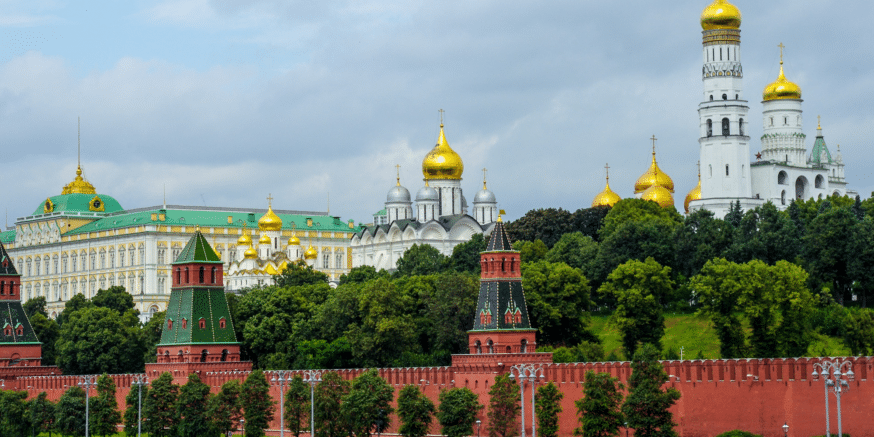TLDR
- A7A5, a stablecoin tied to Promsvyazbank, sponsored Token2049 despite sanctions.
- Singapore’s MAS prohibits dealings with Promsvyazbank, but A7A5 appeared at the event.
- Hong Kong’s lenient stance on Russia allowed A7A5 to sponsor Token2049.
- Several sponsors expressed concern over A7A5’s involvement at Token2049.
A ruble-backed stablecoin linked to a sanctioned Russian bank made a controversial appearance at Singapore’s largest crypto event, Token2049. Despite being tied to Promsvyazbank (PSB), a state-owned bank blacklisted by multiple countries, A7A5, the stablecoin issuer, still managed to sponsor the event. This has raised concerns about compliance with international sanctions, especially since Singapore had sanctioned PSB. The event’s organizers, based in Hong Kong, operate under a different regulatory framework, which allowed the sponsorship to proceed.
Token2049 and Sanctioned Entities
Token2049, one of the largest cryptocurrency conferences in Asia, is known for attracting industry leaders and major sponsors. However, its recent association with A7A5 has sparked controversy. A7A5 is a ruble-backed stablecoin linked to Promsvyazbank, which has been under sanctions by the U.S., the U.K., and other Western nations. These sanctions prohibit interactions with PSB and entities tied to it, like A7A5, under regulations from the Monetary Authority of Singapore (MAS).
In March 2023, Singapore imposed sanctions on PSB due to its role in financing Russia’s defense sector after the invasion of Ukraine. As part of this, MAS prohibited financial entities in Singapore from engaging with PSB or its affiliates. Despite this, A7A5, which holds its reserves at PSB, was able to appear as a sponsor at Token2049. This situation has raised questions about how easily entities can navigate sanctions through different jurisdictions.
Organizers’ Jurisdiction and Compliance Concerns
The presence of A7A5 at Token2049 can be attributed to the fact that the event was organized by BOB Group, a Hong Kong-based entity. Hong Kong operates under a separate legal and regulatory framework compared to Singapore. While Singapore strictly enforces sanctions, Hong Kong has taken a less restrictive approach toward Russia. This divergence in legal stances allowed A7A5 to sponsor the event, despite its ties to a sanctioned Russian bank.
The situation has created unease among some sponsors and participants. Companies involved in the event expressed concerns over being linked to a sanctioned entity, calling it a “compliance nightmare.” One sponsor even mentioned feeling alarmed upon seeing A7A5 listed as a sponsor on the event’s official site. The organizers eventually removed references to A7A5 from the sponsor list, though A7A5 continued to advertise its involvement on social media, including sponsoring the conference’s massage area.
The Role of Sanctions in Crypto Industry Events
The situation highlights the complex intersection of cryptocurrency, international sanctions, and global event organization. As the cryptocurrency industry grows, events like Token2049 play a key role in shaping market dynamics and fostering innovation. However, such events must also navigate the challenges posed by global compliance regulations, particularly when dealing with entities that may be linked to sanctioned organizations.
For crypto projects operating in multiple jurisdictions, compliance with varying sanctions laws can be tricky. In this case, the organizers’ decision to allow A7A5 to sponsor the event raises broader questions about how cryptocurrencies and their associated financial products are regulated across borders.
As countries adopt different stances on Russia and its affiliates, companies in the crypto space may face increasing pressure to ensure that they adhere to sanctions while remaining competitive.
Looking Ahead: The Need for Clearer Regulations
The controversy surrounding A7A5’s sponsorship of Token2049 underscores the need for clearer regulations in the cryptocurrency sector. With the industry’s global reach, events and organizations must consider the complexities of international sanctions when forming partnerships and sponsorships.
As cryptocurrencies become more mainstream, the need for robust compliance frameworks will only grow, especially as jurisdictions continue to adopt divergent policies on financial sanctions.
As this issue continues to unfold, the crypto community will likely face more scrutiny over how it handles sanctioned entities. While Hong Kong’s regulatory stance may differ from that of Singapore, global standards for crypto event sponsorship and participation will need to be carefully considered to avoid further compliance challenges.







